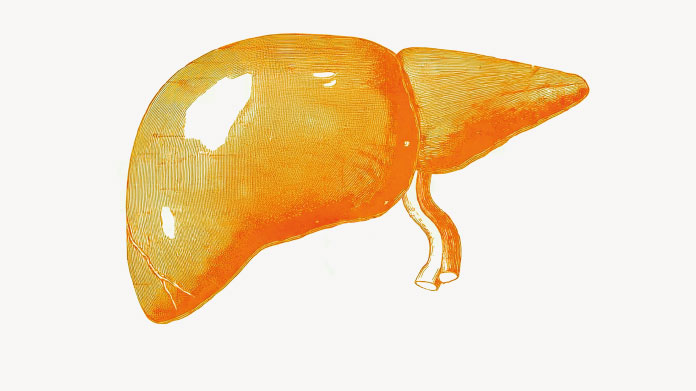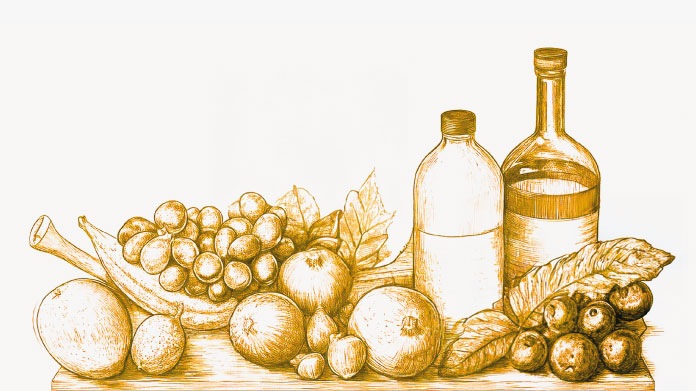5 plants that are good for lung health
Among the plants traditionally used to help cleanse and protect the lungs, the five described below offer particular efficacy.

Thyme
Thyme, whether of the garden or wild variety, has been one of the cornerstones of the traditional European pharmacopoeia since ancient times - it was valued by the Romans for its numerous benefits, as were most other herbs.
With a high content of thymol and flavonoids, thyme is reputed to have antiseptic and antifungal properties (1).
It was traditionally attributed with numerous benefits for respiratory health, including in particular, easing coughing fits, treating sore throats, and acting as an expectorant, thus detoxifying the lungs and helping those with asthma and allergies to breathe more easily. It can be consumed in the form of a herbal tea.
Spruce
A relative of the pine tree, with which it is often confused, the spruce is a popular choice of Christmas tree.
terpenes in spruce that are of particular interest to naturopaths and phytotherapists. These metabolites are thought to have antiseptic and expectorant properties, and to help thin mucus in the lungs (2).
Indeed, any plant related to the spruce can equally be used phytotherapeutically for the same purpose: Scots pine, fir, Aleppo pine and especially the excellent maritime pine.
Green tea
Green tea also has an excellent reputation. It is high in antioxidant flavonoids called catechins, one of which, epigallocatechin gallate (EGCG), may specifically help to reduce lung damage (3).
The nutritional supplement Lung Detox contains extracts of both green tea and maritime pine bark, along with several other beneficial compounds such as the super-antioxidant quercetin and N-acetylcysteine (NAC), recognized for helping to protect and clear the respiratory organs. This supplement has been specifically formulated to facilitate breathing and detoxify the lungs.
Eucalyptus
A large tree native to Australia, eucalyptus contains an active ingredient called eucalyptol, which is used in traditional pharmacopoeia to treat respiratory problems.
Containing volatile essential oils, eucalyptol (4) may have a beneficial effect on the fluidity of mucus in the lungs, improving the function of bronchial tubes. Traditionally, it is used either as an infusion or an inhalation.
Ginger
Last but not least in this list of lung-supportive plants is ginger. As a result of one of its most potent active ingredients, gingerol, this amazing root is used phytotherapeutically in many ways (5).
A powerful antioxidant, ginger is believed to have a significant effect in helping to cleanse and strengthen the lungs (try, for example, the supplement Super Gingerols) (6).
References
- Antimicrobial activity and chemical composition of Thymus vulgaris, Thymus zygis and Thymus hyemalis essential oils, María C.Rotaa, Antonio Herreraa, Rosa M.Martínez, Jose A.Sotomayor, María J.Jordán, Food Control, Volume 19, Issue 7, July 2008, Pages 681-687
- Secrets d’une herboriste. Marie-Antoinette Mulot, éditions du Dauphin, 2015
- Furushima D, Ide K, Yamada H. Effect of Tea Catechins on Influenza Infection and the Common Cold with a Focus on Epidemiological/Clinical Studies. Molecules. 2018;23(7):1795. Published 2018 Jul 20. doi:10.3390/molecules23071795
- Anti-inflammatory activity of 1.8-cineol (eucalyptol) in bronchial asthma : a double-blind placebo-controlled trial. R. JUERGENS, U.DETHLEFSEN, G.STEINKAMP, A.GILLISSEN, R.REPGES AND H.VETTER, Respiratory Medicine, Volume 97, Issue 3, March 2003, Pages 250-256
- Comparative antioxidant and anti-inflammatory effects of [6]-gingerol, [8]-gingerol, [10]-gingerol and [6]-shogaol, Swarnalatha Dugasani, Mallikarjuna Rao Pichika, Vishna Devi Nadarajah, Madhu Katyayani Balijepalli, Satyanarayana Tandra, Jayaveera Narsimha Korlakunta, Journal of Ethnopharmacology, Elsevier, 3 February 2010
- Shirpoor A, Gharalari FH, Rasmi Y, Heshmati E. Ginger extract attenuates ethanol-induced pulmonary histological changes and oxidative stress in rats [published online ahead of print, 2017 Nov 1]. J Biomed Res. 2017;31(6):521-527. doi:10.7555/JBR.31.20160151
Keywords
5 Days
great products and prices
great products and prices
Marie
11 Days
Easy to navigate site
Easy to navigate site, had what I was searching for, good price. easy order-check out
James Tucker
17 Days
My skin is clearing up nicely!
Pretty good for my skin so far.
Christian
19 Days
The new packaging is excellent
The new packaging is excellent - finally! No more squashed boxes and torn envelopes.
GORAN
20 Days
Great Product
Great Product
Larry Garrett
25 Days
Quick shipping
Quick shipping; good price. No issues!
Mary McCarty
26 Days
Thr product is very good and is helping…
Thr product is very good and is helping me on my health. Then is always on time
LUGO Luz
29 Days
Buying was fine
Buying was fine. I had problems with the website not recognizing my login info, and had to call to get it fixed. Other than that, everything was good.
David S. Clark
29 Days
Your super maca and super ginseng are…phenomenal
Your super maca and super ginseng are phenomenal supplements that compliment each other when taking them together. Fantastic feeling of well-being and lots of mid day energy without the crash.
Keith Mason
32 Days
I have had amazing results with every…
I have had amazing results with every supplement I've purchased. I am extremely satisfied with this company
kirstin Torres
32 Days
Fine products
Fine products . They are on the leading edge of online supplements. The only issue -so far-is they sometime run out of subscription items.
Jason Argos
34 Days
The ordering process is very user…
The ordering process is very user friendly and the products always come in a timely manner.
CARTER Rhonda
36 Days
The price for Dr
The price for Dr. Pero's AC-11 is reasonable and in line with his views. (my former colleague). Keep it pure.
CAMPBELL Clayton
38 Days
Right on every time.
Right on every time.
Arthur Nicholas
41 Days
They are cheaper than everyone else and…
They are cheaper than everyone else and the shipping was fast. Great company.
Patricia Adams




